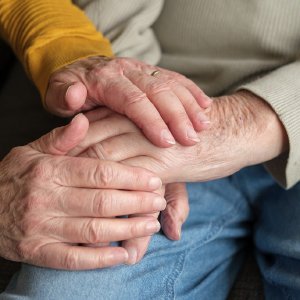Opinion: No “leapfrogging” to physician-assisted suicide
| Published: 03-13-2025 1:00 PM |
Lisa Beaudoin of Concord, principal of Strategies for Disability Equity, is the former executive director of NH’s leading disability justice organization.
Dying is hard, losing someone is hard. I have great sympathy for the brave stories shared by proponents of HB 254, a bill that would permit physician-assisted suicide in New Hampshire, yet my duty is to represent our state’s most vulnerable, those for whom a variety of barriers prevent them from sharing their stories.
I’ve taken notice of who is not supporting HB 254: people from low-income areas of New Hampshire, people of color and Granite Staters with disabilities. These are people who struggle to obtain ordinary access to health care to stay alive.
People with disabilities, low-income families, people of color, veterans and other vulnerable populations have vastly different experiences in accessing health care, let alone high-quality care. Women with disabilities have a hard time obtaining an annual pap smear, let alone obtaining specialty care.
Examples of “medical ableism” and reports of people with disabilities being designated a “health disparity population” can be found in the National Institutes of Health’s April 2023 report.
New Hampshire’s health care system is unfair. We experience enormous gaps in both funding and education aiming to fix health disparities. One area where we know there is uneven access to care is in end-of-life care. We know the days of intractable pain are over, but there is insufficient education, training and funding for palliative care and pain management.
Between the lack of training and funding for pain management and the backlash from the opioid crisis, doctors are lacking what they need to alleviate suffering, but this is not an insurmountable health care gap.
There was a time, after the emergence of extraordinary advances in cancer and other deadly disease treatments, when the health care system treated people to death. Many families watched their loved ones die in agony.
Article continues after...
Yesterday's Most Read Articles
 House committee defunds relief program for mothers and children, spares SNAP incentives
House committee defunds relief program for mothers and children, spares SNAP incentives
 No high-speed E-ZPass at Hooksett tolls for at least two months
No high-speed E-ZPass at Hooksett tolls for at least two months
 New Hampshire law enforcement to step up traffic enforcement on Route 106
New Hampshire law enforcement to step up traffic enforcement on Route 106
 Schools in Lakes Region explore creating a special education school to bring down costs
Schools in Lakes Region explore creating a special education school to bring down costs
 Work continues on new state psychiatric hospital in Concord
Work continues on new state psychiatric hospital in Concord
 House committee reverses vote, adopts prohibition on DEI activities and spending
House committee reverses vote, adopts prohibition on DEI activities and spending
As a consequence, a movement arose led by a mostly White, mostly well-to-do crowd. It wanted to establish a legal standard for what constitutes a “life with dignity,” which is a very dangerous path for New Hampshire.
This is what I call “leapfrogging.” First, as a matter of public health policy, we have the duty to create legislation that engages in the hard work of addressing the true health care gaps. To ignore or leapfrog over the needs of health disparity populations — who struggle to obtain basic care and who are simultaneously put at further risk by physician-assisted suicide laws — is yet another unconscionable example of how people already able to access good care get yet more options while vulnerable populations continue to wait for public health policies to address their needs.
Secondly, lethal prescriptions are a way to leapfrog over gaps in end-of-life care. Funding to advance palliation and pain management, especially for poor seniors, will suffer. New Hampshire ought to pass public health policies to incentivize medical schools to teach and doctors to do continuing education on pain management and palliative care. There must also be funding for end-of-life pain management and palliative care.
The American Medical Association designates medical aid in dying as physician-assisted suicide and opposes these initiatives.
States with physician-assisted suicide laws have no power to investigate for abuse, coercion or consent. This is why there is little data on abuse, coercion or consent. States do not and cannot even track what happens when the patient dies before taking the lethal drugs. The National Council on Disability states “assisted suicide laws apply the lowest culpability standard possible to doctors, medical staff and all other involved parties.” In New Hampshire, HB 254 would have no power to investigate wrongdoing.
The slippery slope is real: 5 of 11 states with this option have loosened their safeguards. Believe former state Rep. Wendy Chase, a supporter, who testified in a Sept. 1, 2020, Judiciary Work Session that she sees ALS, Alzheimer’s and MS eventually being incorporated into New Hampshire’s law. Join progressives in alignment with health equity who are saying “no leap-frogging to physician-assisted suicide.”







 Opinion: Courage and care count
Opinion: Courage and care count
